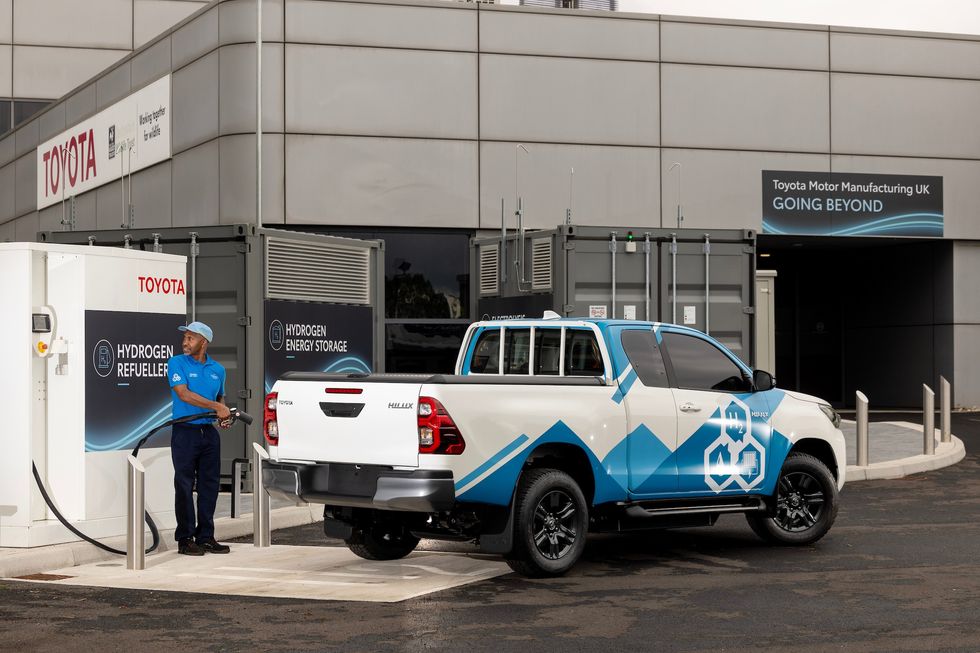Major new fuel source can be 'stored and transported conveniently' in huge boost for road vehicles
There is optimism that ammonia could become more widespread in the future
An expert has called for more research into the fuel source
Don't Miss
Most Read
Trending on GB News
A new fuel source could have major benefits for road vehicles in the near future with one expert telling GB News that infrastructure around the world can be built upon.
The automotive industry is scrambling to reduce emissions from petrol and diesel vehicles, with new technologies continuing to come to the forefront.
One such option is the use of ammonia in road vehicles, which has been touted as a potential alternative for use.
WATCH NOW: Ammonia could be the next big fuel type for vehicles
Dr Xinyan Wang, Senior Research Fellow at the Centre for Advanced Powertrain and Fuel at Brunel University, stated that ammonia could be a suitable fuel for road transport.
Speaking to GB News, he said: “Ammonia is a zero-carbon fuel because each of its molecules is made up of three hydrogen atoms together with a nitrogen atom.
“It’s also an excellent hydrogen carrier: when it’s turned into a liquid, these ammonia molecules can get closer together than hydrogen molecules can in liquid hydrogen.
“This means that a litre of liquid ammonia actually has 1.7 times the amount of hydrogen atoms in it, in comparison to a litre of liquid hydrogen.
“And it only takes around 10 times atmospheric pressure to turn ammonia into a liquid, so it can be stored and transported conveniently.
“In addition, because ammonia is a fertiliser, there is existing ammonia production, storage and transport infrastructure around the world and established procedures to handle it, facilitating its application in transport.”
However, Dr Wang highlighted how ammonia was a toxic gas and that special measures would be needed to prevent any leaking from the engines and fuel systems.
There are existing technologies and knowledge which can be borrowed from the fertiliser industry to deal with the issue.
He added: “When ammonia is used in internal combustion engines as they are now, it suffers from incomplete combustion and leads to poor engine performance because of its higher ignition energy, higher auto-ignition temperature as well as significantly lower flame speed in comparison to petrol and diesel.
“Besides, pollutant emissions such as NOx and N2O also pose challenges to these alternative fuel engines.
“Therefore, further research on advanced combustion processes and emission reduction technologies needs to be performed to address these challenges.”
Hydrogen is already a popular fuel source for some vehicles, and while there are only a few hundred or thousand fuel cell vehicles on the road in the UK at present, there is great optimism that uptake will continue.
Hydrogen has been identified as a key fuel for heavy goods vehicles and lorries, with long ranges, short refuelling times and zero emissions.
Both BMW and Toyota have unveiled hydrogen-powered vehicles in recent months, including the UK-manufactured Hilux pick-up truck.
LATEST DEVELOPMENTS:

The hydrogen Toyota Hilux
TOYOTA
It would have an expected riving range of more than 365 miles, with most hydrogen vehicles refuelling in less than 10 minutes.








